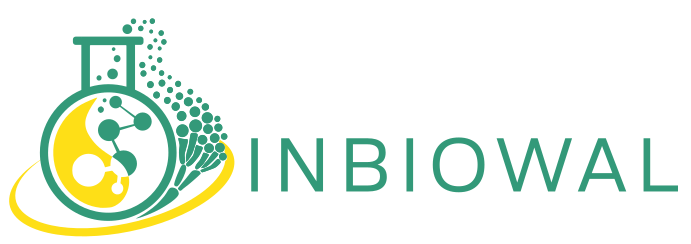Discover the key research areas driving INBIOWAL’s mission to transform industrial by-products into valuable resources.
Five Sustainable Solutions for Waste Valorization
The INBIOWAL project is built around five key research areas, each addressing specific challenges in waste valorization. These areas integrate advanced biotechnological methods with the expertise of six international partners to develop innovative, scalable, and sustainable solutions for converting industrial by-products into valuable resources.
Bioactive Compounds Extraction
Development of innovative methods for isolating bioactive compounds from by-products and waste of the oil industry using natural deep eutectic solvents (NADES).
The Bioactive Compounds Extraction research area focuses on developing eco-friendly methods for isolating bioactive compounds, such as phenolics and proteins, from oil industry by-products like soapstock and expeller. This initiative is part of Work Package 4 (WP4), led by the Laboratory for Cell Culture Technology and Biotransformation at University of Zagreb (UniZg) in collaboration with Wrocław University of Environmental and Life Sciences (UPWr). Utilizing Natural Deep Eutectic Solvents (NADES) as sustainable alternatives to traditional chemical solvents, this research emphasizes green chemistry principles while addressing the scalability and industrial applicability of the developed methods.
Key Objectives:
- Green Chemistry Principles: Designing simple and cost-effective extraction methods that align with sustainability goals.
- Target Compounds: Isolating phenolic compounds and proteins with significant biological and functional properties.
- Scalability: Optimizing extraction processes to support industrial applications.
Research Activities:
At Wrocław University of Environmental and Life Sciences (UPWr):
- Screening and selecting NADES formulations for the effective extraction of phenolics and proteins from waste biomass.
- Characterizing the protein content of extracts to determine their composition and potential uses.
- Assessing the biological activity of extracts, including their effects on the growth of probiotic, pathogenic, and spoilage microorganisms. Specific phenolic compounds will also be tested for their influence on microbial growth.
At University of Zagreb (UniZg):
- Analyzing phenolic compounds in the extracts to identify key bioactive components.
- Optimizing extraction conditions, including solvent composition, temperature, and duration, to maximize yield and efficiency.
- Evaluating the cytotoxic effects of extracts on normal and cancer cell lines to explore potential therapeutic applications.
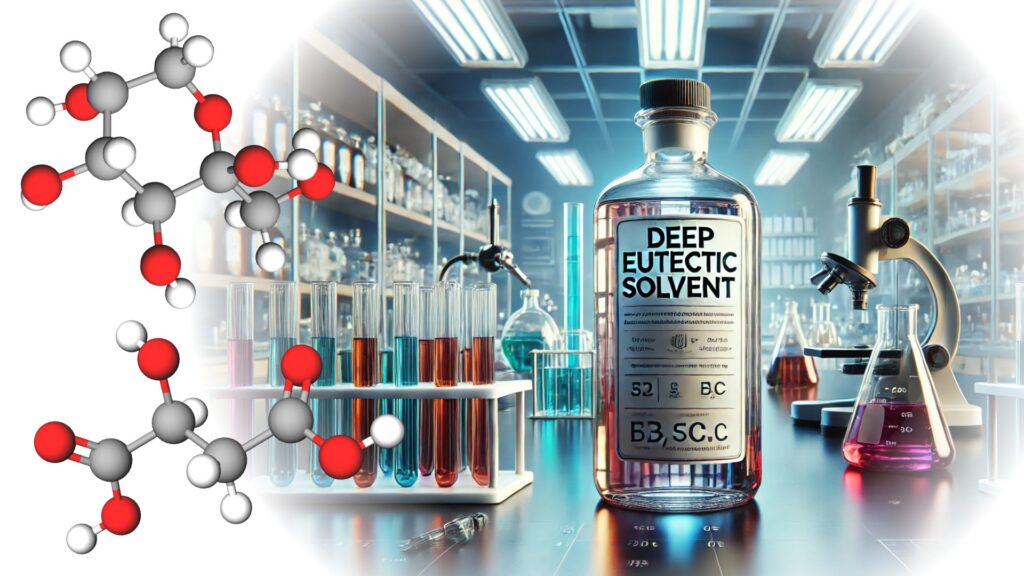
Mobility Program:
This WP includes two long-term research internships (Task 2), where UPWr researchers collaborate with UniZg experts to refine advanced extraction techniques and conduct biological assessments. These internships foster knowledge transfer and strengthen interdisciplinary collaboration within the project.
Expected Outcomes:
- High-Impact Publications: At least one article published in a JCR-listed journal.
- Conference Presentations: Dissemination of findings at scientific and technical conferences to promote collaboration and innovation.
- Industrial Applications: Scalable, eco-friendly extraction methods tailored for industries like food, cosmetics, and pharmaceuticals.
Applications:
- Food Industry: Natural antioxidants and preservatives for healthier, longer-lasting products.
- Cosmetic Industry: Bioactive compounds for anti-aging and protective skincare formulations.
- Pharmaceutical Industry: Exploring therapeutic applications, including antimicrobial and anticancer properties.
By leveraging the combined expertise of UniZg and UPWr, the Bioactive Compounds Extraction research area exemplifies INBIOWAL’s commitment to transforming waste into value through innovation and collaboration. This WP contributes directly to the project’s broader goals of sustainability and green technology development.
Microbial Biomass Production
Biotechnological valorization of oil industry by-products for the production of valuable microbial biomass and products of their metabolism.
The Microbial Biomass Production research area focuses on converting oil industry by-products such as expeller, soapstock, and sludge into high-protein microbial biomass and metabolic products like volatile fatty acids, hydrogen, and methane. This research is part of Work Package 5 (WP5) and is led by the Swedish Centre for Resource Recovery (SCRR) in collaboration with UPWr. By employing innovative biotechnological methods, this WP aims to develop integrated, waste-free processes that maximize resource efficiency while supporting sustainable industries such as agriculture, bioenergy, and bioplastics.
Key Objectives:
- Valorizing By-Products: Transforming oil refining residues into renewable resources with economic and environmental benefits.
- Integrated Processes: Designing waste-free biotechnological systems that produce both high-value biomass and bioenergy.
- Industrial Applicability: Ensuring scalability and feasibility of processes for real-world applications.
Research Activities:
At Wrocław University of Environmental and Life Sciences (UPWr):
- Conducting preliminary studies to assess the physicochemical properties of oil industry by-products and their suitability for bioconversion.
- Selecting optimal fungal strains for the cultivation of edible filamentous fungi on media derived from these by-products.
- Identifying gaps in existing methods to refine concepts for improved efficiency.
At the Swedish Centre for Resource Recovery (SCRR)
- Scaling up trials to test the efficiency of biomass production processes in industrial conditions.
- Optimizing pre-treatment methods to enhance substrate usability for microbial growth.
- Testing the production efficiency of methane and volatile fatty acids through anaerobic digestion of pre-treated residues.
Key Research Components:
- Composition Analysis: Determining the qualitative and quantitative makeup of by-products to perform process optimization.
- Biomass Cultivation: Evaluating the efficiency of fungal biomass production on pre-treated substrates, focusing on protein content and yield.
- Membrane Separation: Extracting valuable components such as free fatty acids and phospholipids for potential industrial applications.
- Bioenergy Production: Producing renewable energy sources like methane and volatile fatty acids from by-product residues.
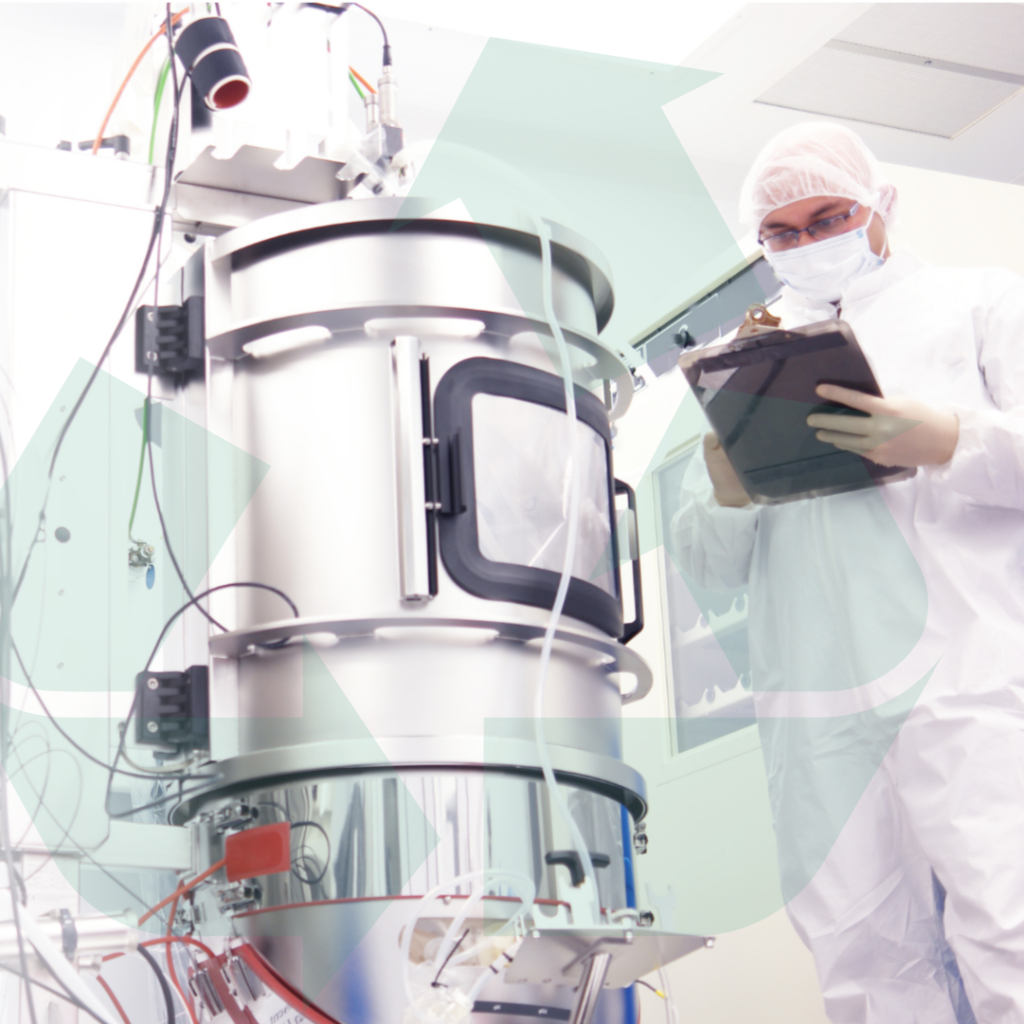
Mobility Program:
Two long-term internships (Task 2) at SCRR will allow researchers from UPWr to conduct larger-scale experiments, enabling the development of industrially relevant methods and strengthening collaborative ties.
Expected Outcomes:
- High-Impact Publications: At least one research article in a JCR-listed journal.
- Conference Presentations: Disseminating findings at international scientific and technical conferences.
- Sustainable Solutions: Biotechnological processes ready for industrial application in agriculture, energy, and bioplastics.
Applications:
- Agriculture: Producing renewable biofertilizers and protein-rich feedstocks for livestock.
- Bioenergy: Generating methane and hydrogen for clean energy applications.
- Bioplastics and Chemicals: Producing volatile fatty acids for use in sustainable materials.
By leveraging the expertise of SCRR and UPWr, the Microbial Biomass Production research area demonstrates how industrial by-products can be transformed into valuable resources, aligning with INBIOWAL’s commitment to sustainability and circular economy principles.
Biocatalytic Transformation of Lipids
The use of biocatalytic processes to transform lipids isolated from oil industry waste into high-value products for industrial use.
The Biocatalytic Transformation research area focuses on using enzymatic processes to convert lipids derived from oil industry waste, such as gums and oleins, into high-value products with applications in the food and pharmaceutical industries. This initiative is part of Work Package 6 (WP6), led by the Institute of Chemical Sciences and Technologies “Giulio Natta” of the National Research Council (SCITEC-CNR) in collaboration with UPWr. The research explores advanced enzymatic transformations to produce functional phospholipids and hydroxy fatty acids (HFAs), emphasizing sustainability and green chemistry principles.
Key Objectives:
- Lipid Valorization: Transforming waste lipids into functional compounds to reduce environmental impact and create valuable resources.
- Sustainable Biocatalysis: Replacing chemical-intensive methods with eco-friendly enzymatic processes.
- Industrial Relevance: Ensuring scalability of processes for food and pharmaceutical applications.
Research Activities:
- Isolation and Pre-Treatment:
- Extracting phospholipids from degumming by-products.
- Hydrolyzing acylglycerols in oleins to obtain fatty acids as substrates for enzymatic conversion.
- Enzymatic Transformations:
- Hydration of Fatty Acids: Using hydratases to produce hydroxy fatty acids (HFAs), which are valuable for their enhanced functionality in food technology.
- Modification of Phospholipids: Conducting acidolysis reactions to incorporate HFAs into phospholipids, resulting in compounds with higher polarity and improved emulsifying properties.
- CLA Production: Isomerizing linoleic acid to produce conjugated linoleic acid (CLA), a compound with potential health benefits. CLA is further concentrated using urea and utilized for enzymatic transformations to create novel HFAs.
- Characterization:
- Analyzing physicochemical properties of modified phospholipids to assess their stability, polarity, and suitability for industrial applications.
- Testing functional properties, such as emulsification and bioactivity, relevant to food and pharmaceutical formulations.
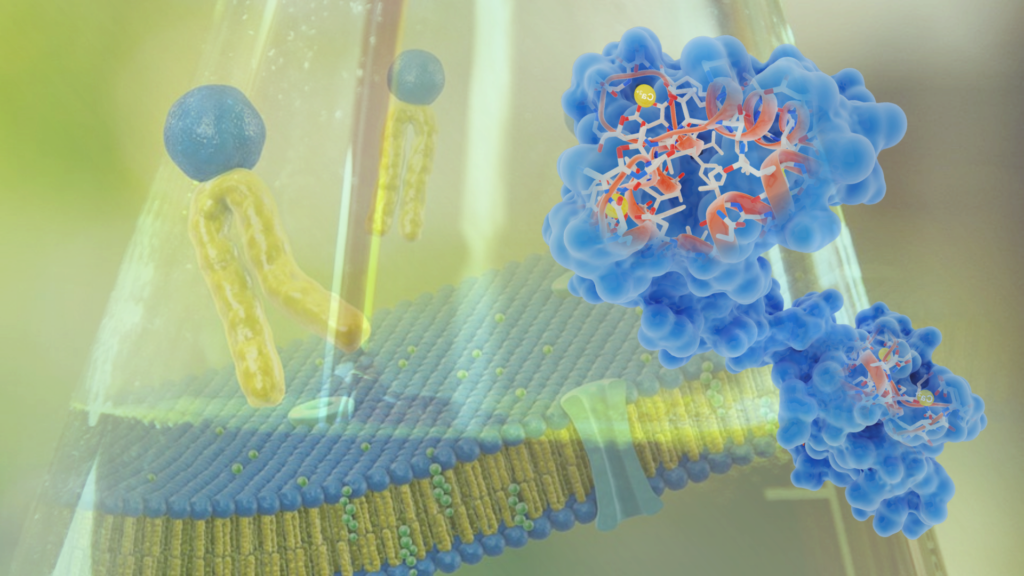
Mobility Program:
The WP involves two long-term research internships (Task 2) at SCITEC-CNR for a researcher and a student from UPWr. These internships focus on scaling up enzymatic transformations and refining methodologies for industrial application. Additional enzymatic modifications of phospholipids will be conducted at UPWr to complement the collaborative efforts.
Expected Outcomes:
- High-Impact Publications: At least one article in a JCR-listed journal.
- Conference Presentations: Disseminating findings at international conferences to foster innovation and collaboration.
- Industrial Applications: Developing sustainable production processes for high-value compounds.
Applications:
- Food Industry: Functional phospholipids with enhanced emulsifying properties for processed foods.
- Pharmaceutical Industry: HFAs and CLA-based compounds with therapeutic potential.
- Green Chemistry: Demonstrating the viability of biocatalysis as a sustainable alternative to chemical synthesis.
By leveraging the expertise of SCITEC-CNR and UPWr, the Biocatalytic Transformation research area contributes to INBIOWAL’s mission to reduce waste, promote green chemistry, and develop scalable, high-value solutions for industrial applications.
Biocatalytic Transformation of Phenolics
Biocatalytic transformations of phenolic compounds obtained from by-products of the oil industry to obtain compounds with added value.
The Biocatalytic Transformation of Phenolic Compounds research area focuses on identifying and optimizing enzymatic methods to transform low molecular weight phenolic compounds, derived from oil industry by-products like oil pressing cakes, into high-value bioactive compounds. This work is part of Work Package 7 (WP7), led by Politecnico di Milano (POLIMI) in collaboration with UPWr. By employing advanced biocatalytic techniques, this WP aims to create antioxidant, antimicrobial, and anti-inflammatory compounds for applications in the food, pharmaceutical, and cosmetic industries.
Key Objectives:
- Phenolic Valorization: Transforming low-value phenolic precursors into bioactive compounds with industrial applications.
- Sustainable Biocatalysis: Utilizing eco-friendly enzymatic methods for high-efficiency transformations.
- Industry-Relevant Outputs: Producing scalable solutions for antioxidant and antimicrobial products.
Research Activities:
- Esterification of Phenolic Acids:
- Using lipases to esterify phenolic acids like p-coumaric, caffeic, and ferulic acids.
- Employing short- and long-chain aliphatic alcohols to create ester derivatives with enhanced lipophilicity and antioxidant properties.
- Optimizing immobilized lipases for continuous-flow reactor systems to improve productivity and enzyme reuse.
- Synthesis of Alpha-Amino Acids:
- Leveraging aromatic amino acid ammonialyase (AALs) to add ammonia to phenolic derivatives, producing unnatural alpha-amino acids.
- Optimizing phenolic group derivatization to enable further transformations.
- Creating derivatives with biological activities for therapeutic and functional applications.
- Decarboxylation via Filamentous Fungi:
- Utilizing fungi to decarboxylate hydroxycinnamic acids into vinylphenols, such as 4-vinylphenol, 4-vinylcatechol, and 4-vinylguaiacol.
- Evaluating the biological properties of these compounds, including antioxidant, anti-inflammatory, and antimicrobial activities.
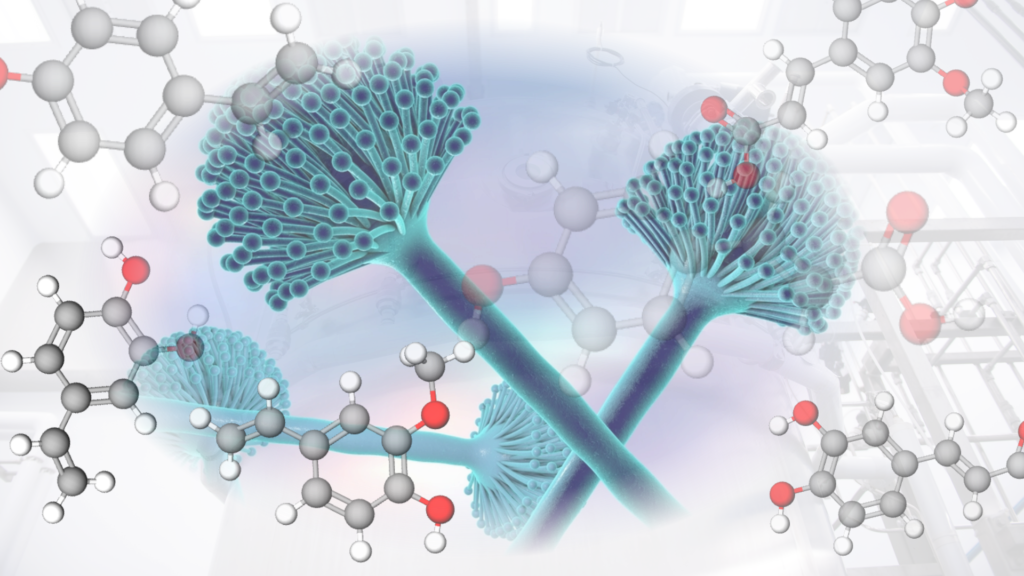
Preliminary Studies at UPWr:
Initial experiments, including enzymatic esterification reactions, fungal strain selection for decarboxylation, and analytical method development, will be conducted at UPWr. These studies will guide the detailed research carried out at POLIMI.
Collaboration with POLIMI:
Two long-term research internships (Task 2) for PhD students from UPWr at POLIMI will focus on refining biocatalytic methods and scaling up the processes for industrial relevance.
Expected Outcomes:
- High-Impact Publications: At least one research article published in a JCR-listed journal.
- Conference Presentations: Dissemination of findings at international scientific conferences.
- Industrial Applications: Scalable biocatalytic processes for antioxidant and antimicrobial products.
Applications:
- Food Industry: Antioxidants for improving food shelf life and nutritional quality.
- Cosmetic Industry: Antimicrobial and anti-inflammatory compounds for skincare products.
- Pharmaceutical Industry: Bioactives with therapeutic potential for treating inflammation and infections.
By combining the expertise of POLIMI and UPWr, the Biocatalytic Transformation of Phenolic Compounds research area advances INBIOWAL’s mission to transform industrial waste into valuable resources. This WP demonstrates how phenolic by-products can be leveraged for sustainable and high-impact applications.
Molecular Engineering of Enzymes
The use of ASR, molecular and synthetic engineering to optimize selected enzymes used in biocatalytic transformations of lipid and phenolic compounds obtained from oil industry waste.
The Molecular Engineering of Enzymes research area focuses on optimizing enzymes used in biocatalytic transformations of lipids and phenolic compounds derived from oil industry by-products. This work is part of Work Package 8 (WP8), led by the University of Queensland (UQ) in collaboration with UPWr. Through advanced genetic engineering, molecular biology, and synthetic biology techniques, researchers aim to enhance enzyme stability, activity, and efficiency, enabling their application under challenging industrial conditions.
Key Objectives:
- Enzyme Optimization: Improving enzyme stability and performance in unconventional media such as NADES and organic solvents.
- Scalable Applications: Designing enzymes suited for industrial-scale biocatalytic processes.
- Innovation in Biocatalysis: Incorporating cutting-edge molecular techniques like Ancestral Sequence Reconstruction (ASR) and nanoencapsulation.
Research Activities:
- Conceptualization Stage:
- Selecting enzyme groups of interest through consortium discussions.
- Constructing phylogenetic trees using sequence data from public databases (NCBI, UniProt, GenBank).
- Reconstructing ancestral enzyme sequences (ASR) to identify structural changes and improve stability.
- Enzyme Expression and Characterization:
- Expressing selected enzyme sequences in E. coli for laboratory testing.
- Characterizing enzymes based on thermostability, performance in aqueous and organic solvents, substrate specificity, and catalytic efficiency.
- Comparing newly optimized enzymes with existing enzymes used in other project work packages to assess improvements.
- Nanoencapsulation into Virus-Like Particles (VLPs):
- Selecting two optimized enzymes for nanoencapsulation.
- Expressing VLP-enzyme proteins in E. coli cells.
- Conducting advanced characterization of VLPs, including structural analysis using a transmission electron microscope.
- Reassessing enzyme stability and efficiency after nanoencapsulation to confirm improvements.
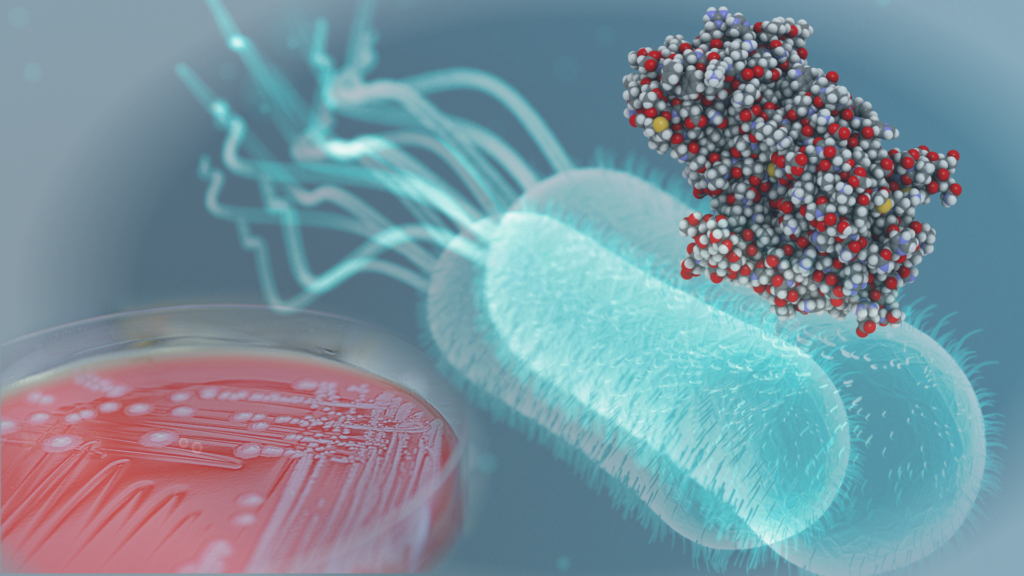
Collaboration and Mobility Program:
Research in WP8 includes bioinformatics collaboration with UQ’s molecular biology team, led by Prof. Gillam. Advanced experimental work on VLPs will be carried out during a two-month research internship at UQ (Task 2). Preliminary laboratory tests on enzyme performance will take place in Poland, ensuring continuous collaboration between UPWr and UQ.
Expected Outcomes:
- High-Impact Publications: At least one article in a JCR-listed journal.
- Conference Presentations: Dissemination of findings at international scientific events.
- Industrial Relevance: Scalable enzyme solutions for efficient and sustainable biocatalysis.
Applications:
- Industrial Biocatalysis: Stable and efficient enzymes for transforming lipids and phenolic compounds into valuable products.
- Green Chemistry: Enabling enzyme-driven processes as sustainable alternatives to traditional chemical methods.
- Advanced Biotechnologies: Demonstrating the potential of nanoencapsulation to enhance enzyme performance in industrial applications.
By leveraging the expertise of UQ and UPWr, the Molecular Engineering of Enzymes research area sets the foundation for next-generation biocatalytic processes. These advancements play a critical role in ensuring the success and scalability of INBIOWAL’s broader objectives in sustainable waste valorization.
